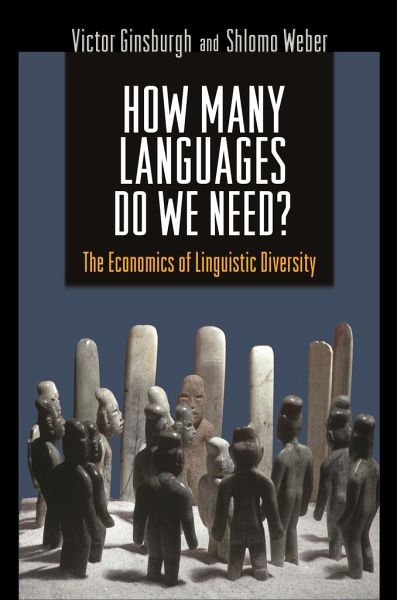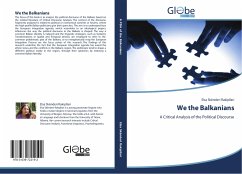
How Many Languages Do We Need?
The Economics of Linguistic Diversity

PAYBACK Punkte
29 °P sammeln!
"A language is both a means of communication and a repository of culture. By limiting the number of languages, we make it easier for people to understand one another, but we leave the world a less interesting place. Victor Ginsburgh and Shlomo Weber explore this trade-off and much else in their rich and fascinating book."--Eric S. Maskin, Nobel Laureate in Economics "The authors succeed brilliantly in laying out a coherent framework that explains the critical and substantive issues for the economics of linguistic diversity."--Antonio Merlo, University of Pennsylvania "Language is what unifies ...
"A language is both a means of communication and a repository of culture. By limiting the number of languages, we make it easier for people to understand one another, but we leave the world a less interesting place. Victor Ginsburgh and Shlomo Weber explore this trade-off and much else in their rich and fascinating book."--Eric S. Maskin, Nobel Laureate in Economics "The authors succeed brilliantly in laying out a coherent framework that explains the critical and substantive issues for the economics of linguistic diversity."--Antonio Merlo, University of Pennsylvania "Language is what unifies people. It is also what divides them. This paradox was first observed in the Biblical story of the Tower of Babel, and the contradiction continues to plague modern times. Ginsburgh and Weber provide a brilliant analysis of this persistent and urgent problem, and they explore this vital question: given that linguistic diversity has costs, how much diversity can we afford in today's world?"--Dean Keith Simonton, University of California, Davis "This book's argument is straightforward, the volume of literature assembled is impressive, and the econometric contribution is excellent. The authors prove that econometric methods can be expanded into a field as challenging as linguistic diversity."--Michael Hutter, Technische Universität Berlin "While there has been a great deal of work on linguistic diversity in economics over the last twenty years, no book has emerged on the topic to date. Examining matters from ethnography to labor, political, cultural, and trade issues, this accessible and important book fills the void."--Jacques Melitz, Heriot-Watt University "There are few subjects as complex and sensitive as the use of languages in a society. The affection of an individual for his language reflects on the whole social group and the language becomes the property of the clan, tribe, territory, and nation. This book describes the range of issues that this raises and the complexities of the trade-off between protecting languages and the possible gains that would result from a reduction of their number."--Michel Vanden Abeele, former director general, Directorate-General for Translation of the European Commission













